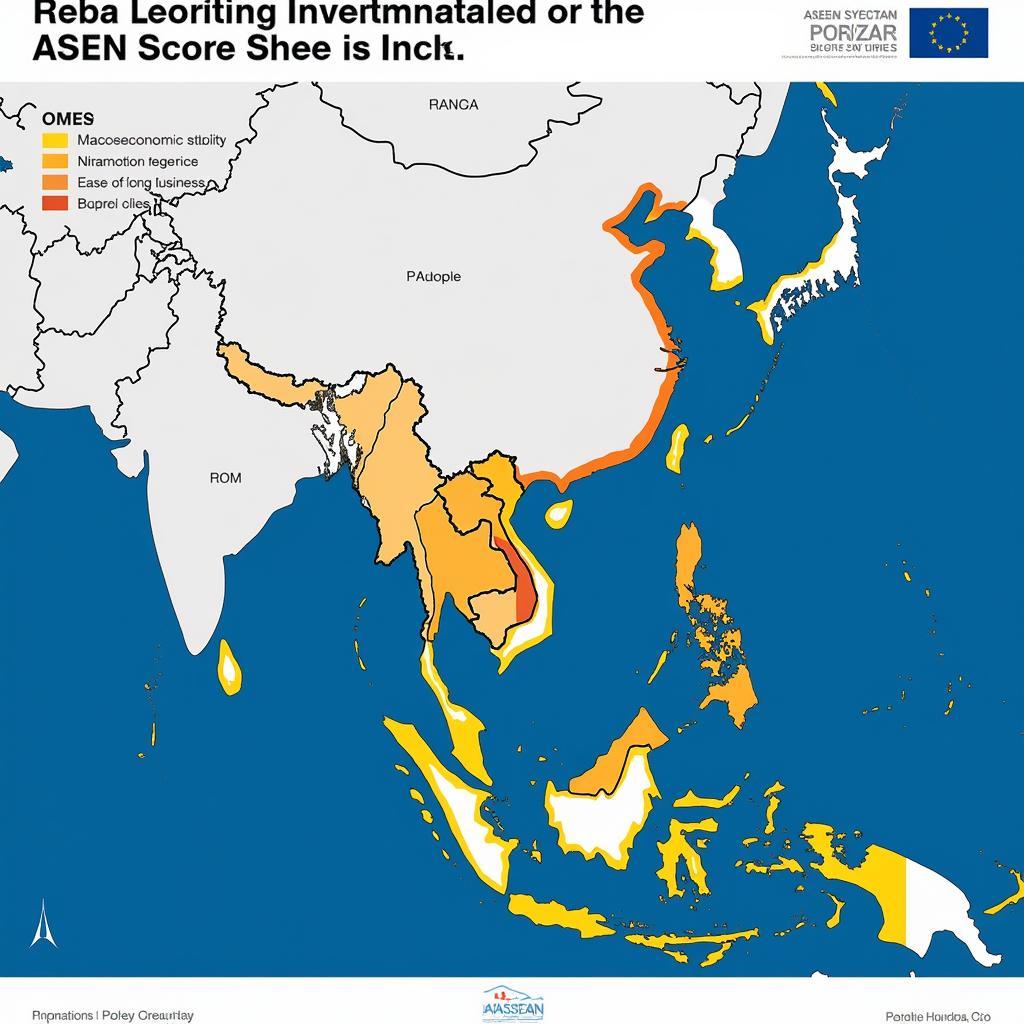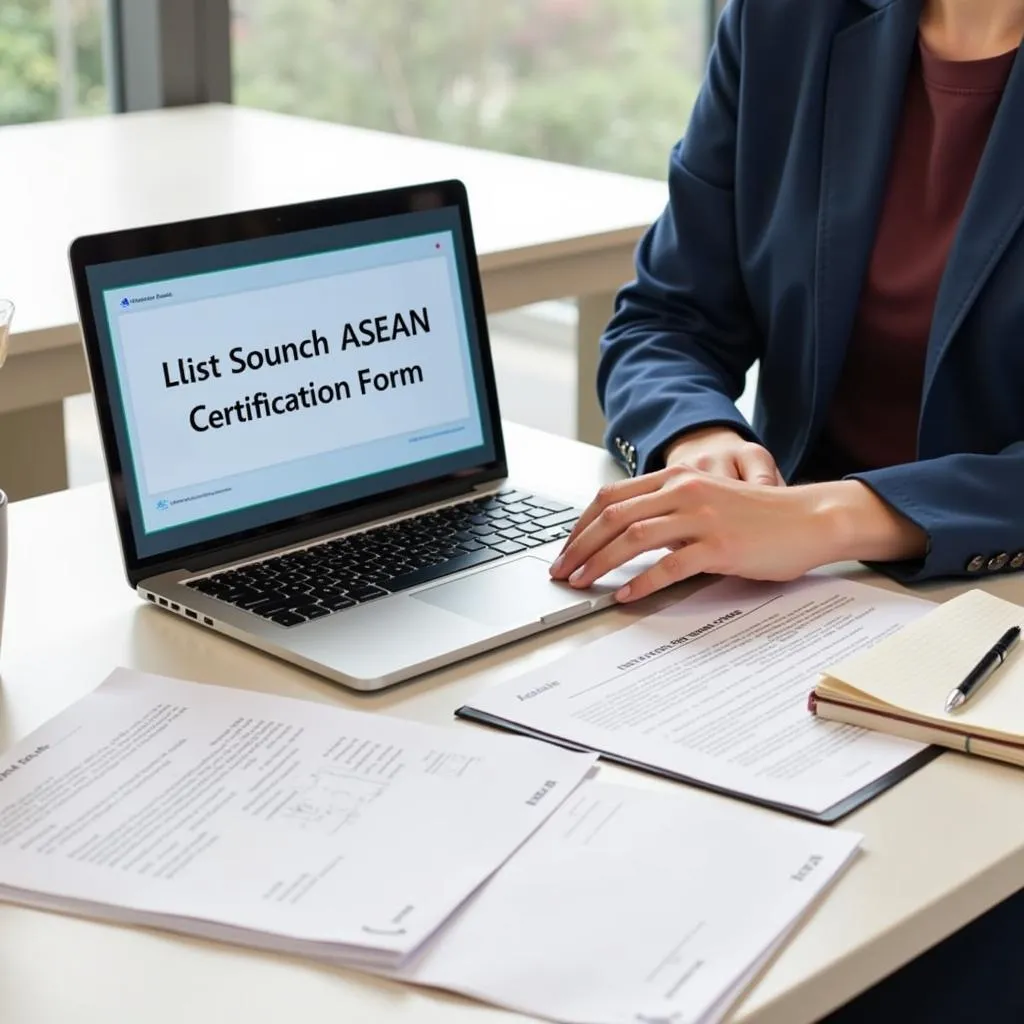ASEAN name pronunciation can be a tricky endeavor for those unfamiliar with the region’s diverse languages and cultures. This guide will help you navigate the nuances of Southeast Asian names, promoting better communication and cross-cultural understanding. We’ll explore the linguistic diversity of the region and offer practical tips for pronouncing names correctly.
Understanding the Complexity of ASEAN Name Pronunciation
Southeast Asia is a melting pot of cultures, and this diversity is reflected in its naming conventions. From tonal languages like Vietnamese and Thai to Malay and Indonesian, each country has its own unique phonetic rules. Mispronouncing someone’s name can be seen as disrespectful, so taking the time to learn the proper pronunciation is crucial. It demonstrates respect and fosters a more inclusive environment.
Navigating Tonal Languages
Languages like Vietnamese, Thai, and Lao are tonal, meaning that the meaning of a word changes depending on the tone used. This adds another layer of complexity to name pronunciation. For example, in Vietnamese, the name “Nguyễn” can have several different meanings depending on the tone. While it might seem daunting at first, resources are available to help you understand and master these tonal nuances. Even a basic understanding can make a significant difference.
The Influence of Colonial History
Colonial history has also left its mark on Southeast Asian names. Many names reflect the influence of Sanskrit, Arabic, Chinese, Portuguese, Dutch, French, and English. This historical layering adds to the richness and complexity of the region’s onomastics. Understanding this historical context can be helpful when deciphering the origins and pronunciation of certain names.
Practical Tips for Pronouncing ASEAN Names
While perfect pronunciation might take time and practice, there are some simple steps you can take to improve your pronunciation of ASEAN names.
- Listen Carefully: Pay attention to how native speakers pronounce names. Try to mimic the sounds and intonation.
- Ask for Clarification: Don’t be afraid to ask someone how to pronounce their name. It’s much better to ask than to repeatedly mispronounce it.
- Use Online Resources: Several websites and apps offer pronunciation guides for different languages. For instance, resources like ASE pronounce can be invaluable.
- Break Down the Name: Break the name down into syllables and practice each syllable individually. Then, try to string them together.
- Practice Regularly: Like any skill, practice makes perfect. The more you practice, the more confident you’ll become.
Utilizing Phonetic Guides
Phonetic guides can be incredibly helpful, particularly for languages with unfamiliar sounds. These guides often use Romanized spellings to represent the sounds of the original language. However, it’s important to remember that these guides are just approximations and might not always be completely accurate.
Why Correct Pronunciation Matters
Correctly pronouncing someone’s name goes beyond mere politeness. It shows respect for their identity and culture. It acknowledges their individuality and fosters a sense of belonging. In a diverse region like Southeast Asia, proper name pronunciation is an important step towards building stronger relationships and fostering inclusivity. Imagine how you would feel if your name were constantly mispronounced. It can be frustrating and even alienating. By making the effort to pronounce names correctly, you demonstrate your commitment to cross-cultural understanding and inclusivity. It can be the beginning of a meaningful conversation and a stronger connection.
The Impact on Communication
Mispronouncing a name can lead to communication breakdowns, especially in professional settings. It can create confusion and even hinder effective collaboration. Imagine a journalist mispronouncing the name of a high-ranking official during an interview. It could undermine their credibility and damage the relationship. In business, mispronouncing a client’s name could create a negative impression and jeopardize a potential deal. Correct pronunciation, therefore, is not just a matter of courtesy, but also a crucial element of effective communication.
A2 ASE Practise can help you improve your pronunciation and communication skills.
Conclusion
Mastering ASEAN name pronunciation is a journey of cultural discovery and respect. It’s a way of honoring the rich tapestry of languages and traditions that make Southeast Asia so unique. By taking the time to learn and practice, you can contribute to a more inclusive and understanding environment for everyone. While it may seem like a small gesture, pronouncing someone’s name correctly can have a profound impact. It shows respect, builds trust, and opens doors to meaningful connections. So, embrace the challenge and embark on this enriching journey of linguistic and cultural exploration.
FAQs
-
What are some common mistakes people make when pronouncing ASEAN names? Many people tend to anglicize names or apply pronunciation rules from their own language, ignoring tonal variations and unique sounds.
-
Where can I find resources to help me learn how to pronounce ASEAN names correctly? Online dictionaries, language learning apps, and specialized websites like ASE pronounce offer pronunciation guides and audio examples.
-
Is it okay to ask someone how to pronounce their name? Absolutely! It’s always better to ask than to mispronounce someone’s name repeatedly.
-
Why is correct pronunciation important in the ASEAN context? Correct pronunciation demonstrates respect for cultural diversity and fosters stronger communication and relationships.
-
What are some tips for remembering how to pronounce unfamiliar names? Write down the name phonetically, associate it with a familiar sound or word, and practice saying it aloud regularly. You can also find help with ASE AKASSE Odense.
-
How can I improve my overall understanding of Southeast Asian languages? Consider taking a language course, engaging with native speakers, and exploring online resources. Perhaps AIDE ASE Anah can assist you.
-
Are there any cultural sensitivities I should be aware of when asking about someone’s name? Approach the conversation with respect and genuine curiosity. Avoid making assumptions or generalizations about their name or cultural background. ASE Carne can offer additional cultural insights.
Common Scenarios Involving Name Pronunciation
-
Business Meetings: Ensure correct pronunciation of names during introductions and throughout the meeting.
-
Journalism and Media: Accurate pronunciation is crucial for interviews and reporting.
-
Academic Settings: Respectful pronunciation contributes to an inclusive learning environment.
-
Social Interactions: Correctly pronouncing names shows respect and builds rapport.
Further Exploration
For more information on ASEAN cultures and communication, explore other articles on our website.
Contact Us
For further assistance, please contact us at:
Phone: 0369020373
Email: [email protected]
Address: Thon Ngoc Lien, Hiep Hoa, Bac Giang, Vietnam
We have a 24/7 customer support team.


